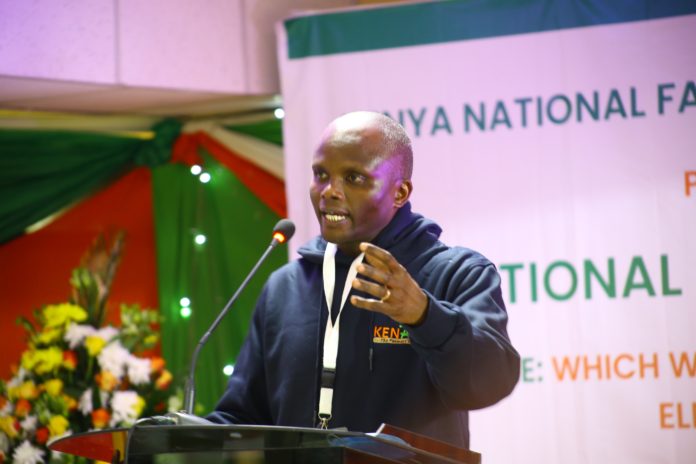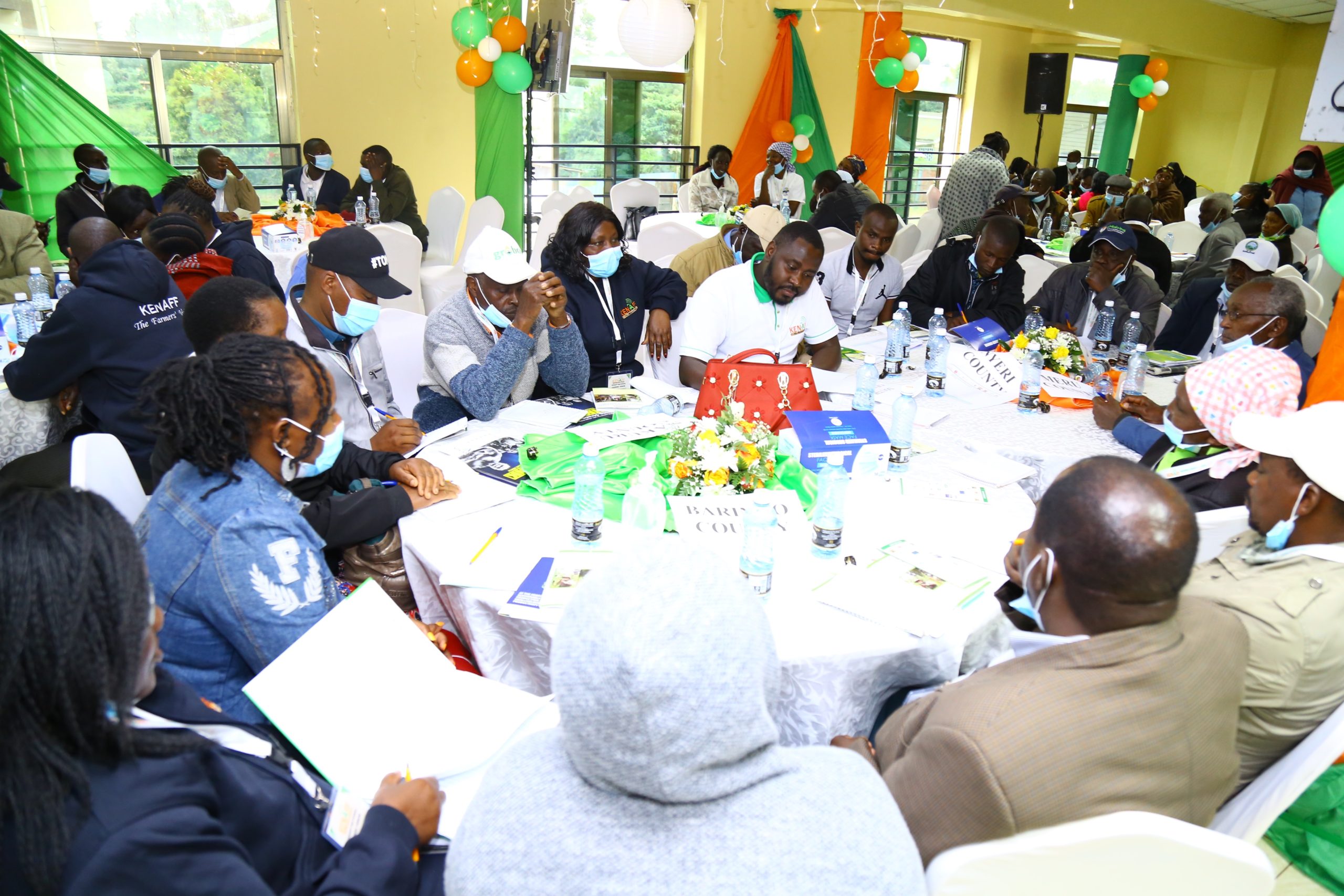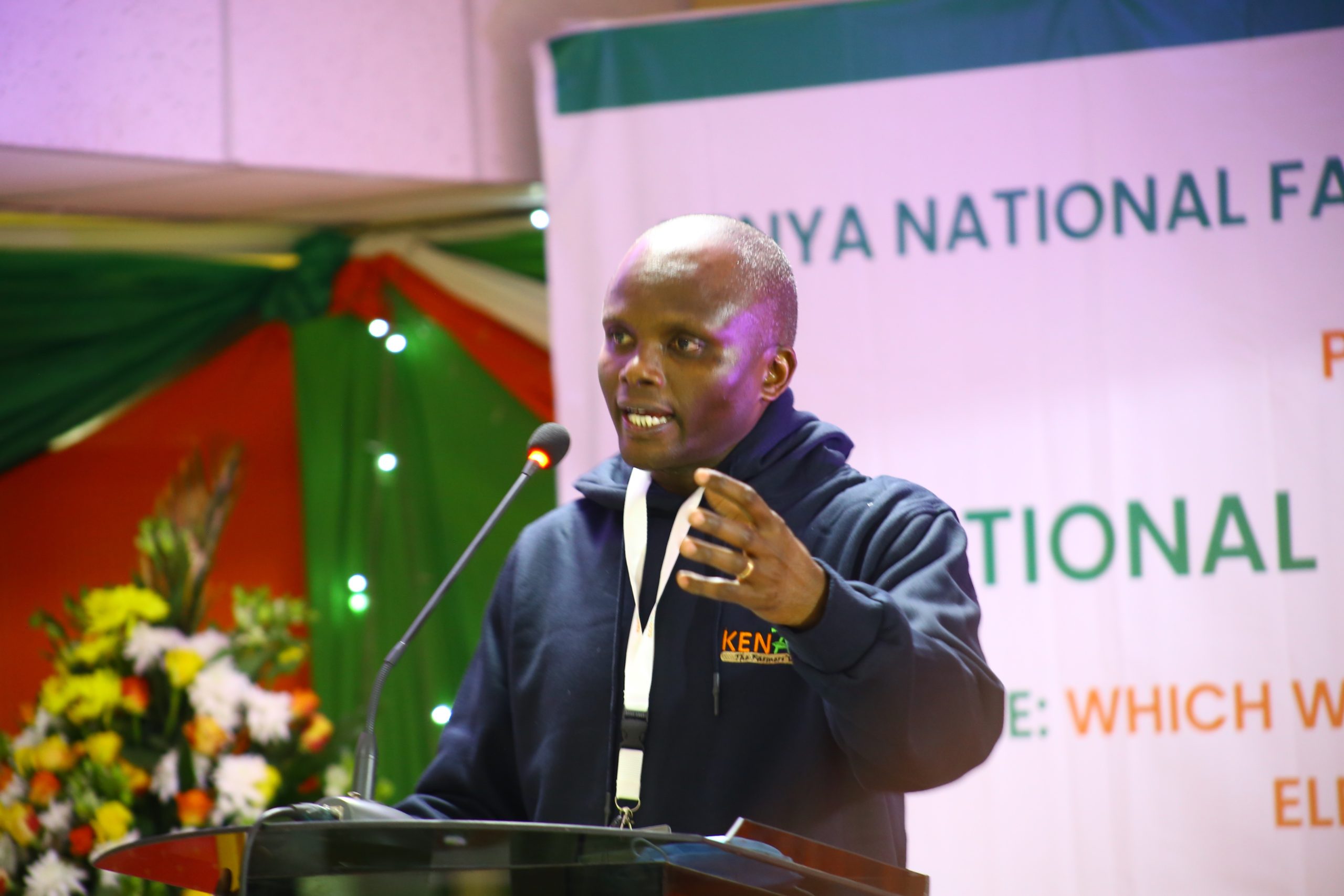
By Clifford Akumu
Nairobi, Kenya: Kenyan farmers have called upon political coalitions to include research and development of indigenous food systems in their manifestos to tackle the country’s increasing food and nutrition insecurity.
The farmers also demanded a clear roadmap on how the political parties will address sustainable local agri-food systems-which has been battered by the ongoing war in Ukraine, climate disasters, and the effects of Covid-19-related supply chain interruptions.
Farmers want political parties to address these issues as a matter of urgency as over 4.1 million people across the country staring at risk of starvation.
Dr. Mwendah M’Mailutha, Chief Executive Officer at Kenya National Farmers’ Federation (KENAFF) challenged political coalitions to put more funding into research and development of indigenous food systems as they were healthier.
Dr. M’Mailutha further stressed the need to promote research into indigenous crops such as sorghum, African leafy vegetables, yams, millet, and cassava which are important alternatives to the country’s staple cereals.
“We urge all the political coalitions to put more money into research and development of our indigenous food systems. We need to focus on the study of these indigenous foods to ascertain their nutritional benefits,” Dr. M’Mailutha said on the sidelines of the National Farmers Forum in Nairobi.

National farmer leaders, stakeholders in the agriculture sector, and representatives from over 44 counties converged to collate the views and demands of Kenyan farmers on measures required to boost the country’s agricultural performance, and raise incomes among value chains into a Farmers’ Manifesto.
Dr. M’Mailutha said the farmers’ manifesto will be presented to all the political coalitions in the run-up to the August polls.
“We also intend to cascade the farmers’ manifesto with priority issues and present it to the duty holders at different levels of government, “he added.
Climate change, technology, farm mechanization, markets, and guaranteed minimum returns on agricultural produce are some of the issues Kenyan farmers want political parties to address.
Food and nutrition insecurity continues to be one of Kenya’s biggest problems with the latest figures indicating that 14.5 million Kenyans are chronically food insecure.
More than 25 percent of children under five 5 years or 2 million children are undernourished. Child under nutrition occurs when children do not consume enough calories, protein, or micronutrients to maintain good health.
“Should people in this country die of hunger, just because the rains have failed? How many people can afford maize flour at over Ksh200? We don’t have to really depend on maize alone to feed our people.” Dr. M’Mailutha posed.
Kelvin Shingles, Kenya Country Director Welthungerhilfe said the soaring food prices are having a significant impact on food security.
“The ambitions and commitments to zero hunger by 2030 seem beyond reach. As farmers, we need the right information and research to present to the government to influence the processes and policies in tackling hunger,” said Shingles.
“Food security continues to remain a major problem and should be taken seriously. We need to support farmers to produce food that is accessible and affordable to all.”

Sorghum, millet, and cassava are some of the crops that have been neglected by farmers. The crops have remained unattractive to most farmers yet they have high nutritional value and could be the answer to malnutrition in arid areas.
The leaves of the spider plant, for instance, give many times more vitamin A than cabbage.
Cassava leaves is a major vegetable in central African nations are rich in proteins. A single serving, or 100 grams of the leaves, can provide up to three times the recommended daily intake of vitamin A in children and adults.
He called upon political coalitions to help map out drought-tolerant crops that the country can support.
Mr. Shingles further urged political coalitions to address gaps within the country’s food systems contributing to food loss and waste.
“We need to come up with policies to tackle food loss,” he added.













